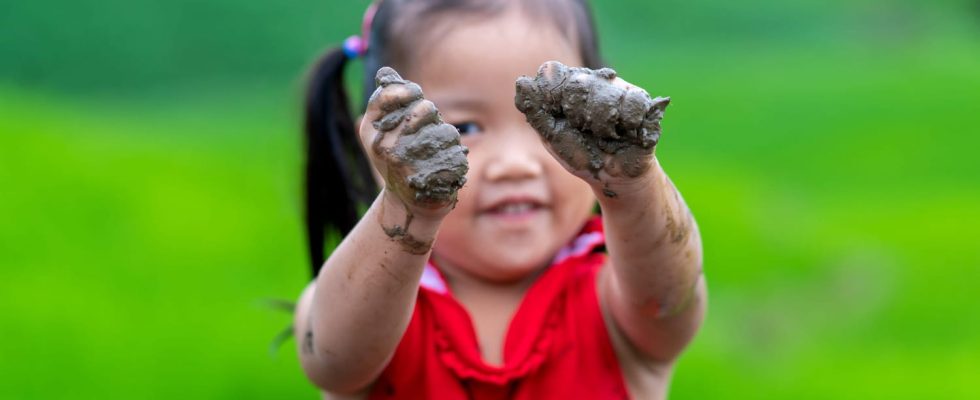As surprising as it may seem, children have every interest in getting dirty playing in the mud. Some health professionals even recommend letting them do it!
If you are a parent, you often look after children or you go to parks, you have undoubtedly already been faced with this type of situation: most children love to play in the dirt and even more so when it is muddy. They jump with both feet into the mud puddles. They touch and manipulate the earth with their little hands, sometimes they even get it on their faces or in their mouths… And no matter how much you tell them “no, don’t do that, you’ll get dirty”they do not listen and continue their activity as if nothing had happened.
Aside from getting dirty or staining clothes, for some parents, letting a child play with dirt is not at all hygienic. However, from a health point of view, children and especially young ones would benefit from playing in the mud. Indeed, according to an emergency doctor, alias @docteur.urgences on Tiktok, this “boosts their immunity and reduces asthma and allergies”. In her short video, which can be seen at the top of this article, the health professional explains that by playing in the mud, young children expose their bodies to germs, which are found in the earth. In response, white blood cells activate and defend the child’s body, thus gradually developing its immune defenses.
Conversely, “if a baby is too clean”implying that it never gets dirty in contact with nature, “the white blood cells are not working hard enough and when the child is exposed to germs, there will be an explosive response. This is partly what explains asthma and allergies,” explains the specialist in her video. Several studies corroborate his remarks, notably one which appeared in the review Science Advances in October 2020. In this study, researchers from the University of Helsinki, in Finland, looked at 75 children, aged 3 to 5, spread across ten different daycares.
In some establishments, they have transformed concrete courtyards into green spaces, adding grass, shrubs, plants, etc. The children were then encouraged to have fun with the earth and other elements of nature. After 28 days, the experts observed that the microbiota of the skin and intestines of these children was more diverse than the others, which is a good advantage. They thus noted that green spaces are indeed beneficial for strengthening the immune system of the youngest. Of course, this does not mean that a child should, for example, eat dirt or stay dirty for hours or days. It is only appropriate to let him have fun outside, in nature and within reason.
